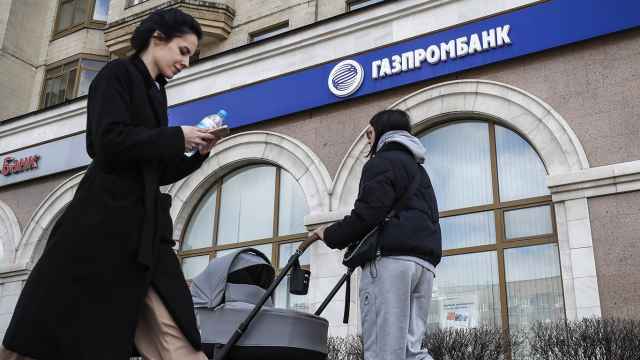Russian express grocery service Samokat — which was acquired last year by Mail.ru Group and Sber — is aiming to launch in the U.S later this year.
Samokat founder Vyacheslav Bocharov announced the plans at last week’s St. Petersburg International Economic Forum (SPIEF), after they were first reported by business site The Bell. The company’s U.S. operations are set to operate under the brand name of “Buyk,” Bocharov said.
Samokat is one of a host of fast-growing food tech initiatives that have swept across Russia’s largest cities in recent years. Operating out of so-called “dark stores” — mini warehouses for couriers to ferry orders from — they promise to deliver groceries to city center apartments within 15-30 minutes.
Bocharov said New York City could be the first market covered by Samokat’s U.S. service, with a possible launch as early as this summer. Neither the scale of the project nor the amount of investment being poured into the launch have been revealed, The Bell reported.
“In the U.S., [Samokat] will have a new name, but our aim to free people from the routine will remain, as will the real-time delivery retail technology that we created,” Bocharov said.
“Today, Samokat operates in 18 Russian cities and continues to open 80 dark stores every month. We are growing fast and we know that we can do even more.”
Russian leadership
Samokat will not be the first Russian food tech startup trying to conquer the U.S. and other potentially lucrative Western markets.
“Russian companies pioneered a new model for food delivery: after Samokat and Yandex Lavka launched their 15 minute-service in Moscow, Russian entrepreneurs started opening similar ventures in the U.S., the U.K. and Europe,” AltaIR Capital founder Igor Ryabenky told East-West Digital News.
Entrepreneur Vitaly Alexandrov, who is behind another of the express grocery outfits operating in the U.S. — Food Rocket in San Francisco — recently said he believes U.S. companies are behind their Russian counterparts in the fast-growing industry.
“There was nothing like this in California — or even in the U.S. in general — before October 2020. Meanwhile Russians are accustomed to express delivery services like Yandex Lavka and Samokat,” Alexandrov told the VC.RU business news site.
“Few people had tried to implement such a business model in the U.S. They mostly entered the segment of alcohol or snacks, but did not dare to try a larger food segment that included fruit, vegetables, milk and other perishable products. They are very difficult to manage: they have a short shelf life, which can lead to large write-offs and, as a result, large losses,” he added.
Food Rocket employs 45 people, including around 30 Russian programmers and product managers. The rest of the team are Americans, including Jerrin James, a former Amazon executive and Food Rocket co-founder.
Earlier this year the initiative raised raised $2 million in funding from Russian investment funds, including Artur Shamalov, who has also launched a similar express-delivery service in London.
Samokat rival Yandex Lavka has also launched in Israel and France — under the brand name Yango Deli — and is planning to enter the U.K. shortly.
A Message from The Moscow Times:
Dear readers,
We are facing unprecedented challenges. Russia's Prosecutor General's Office has designated The Moscow Times as an "undesirable" organization, criminalizing our work and putting our staff at risk of prosecution. This follows our earlier unjust labeling as a "foreign agent."
These actions are direct attempts to silence independent journalism in Russia. The authorities claim our work "discredits the decisions of the Russian leadership." We see things differently: we strive to provide accurate, unbiased reporting on Russia.
We, the journalists of The Moscow Times, refuse to be silenced. But to continue our work, we need your help.
Your support, no matter how small, makes a world of difference. If you can, please support us monthly starting from just $2. It's quick to set up, and every contribution makes a significant impact.
By supporting The Moscow Times, you're defending open, independent journalism in the face of repression. Thank you for standing with us.
Remind me later.







